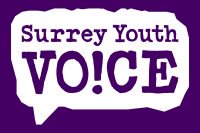This list has been put together by young people who have attended participation groups for care-experienced children and young people facilitated by Surrey Youth Voice. The young people who created this list were aged between 13 and 25 years old and have care experience.
Whilst this list was created by care-experienced children and young people and those who have left care, it is important to note that these are only examples of alternative words and phrases that can be used. Young people feel that it is the decision of each individual child or young person to decide which words, phrases or terminology should be used.
We have listed these words alphabetically and have included a definition to help explain what the word means if you feel it will help the young person you are working with or helping. Some of these terms required additional notes and comments, in these sections are direct quotes from the young people who created this list.
The direct quotes from young people are based on their own individual thoughts, and are not reflective of all care-experienced children and young people.
A to Z
P
- Personal Adviser (PA)
- Pathway Plan
- Peers
- Personal Education Plan (PEP)
- Permanence
- Placement
- Placement Moves
- Promise
Personal Adviser (PA)
Meaning: a personal adviser for a young person that is no longer looked after. There to support and advise their assigned young person with making the right decisions for you.
Preferred:
- Adviser
- Guidance giver
- Key worker
- Leaving care worker
- Life advisor
- Life Guide
- Mentor
- Personal Adviser
- Senior support
Pathway Plan
Meaning: a pathway plan is a document that you will complete with your Social Worker or Personal Adviser between the ages of 16 and 21. Your pathway plan will set out your needs, your views, any future goals, and what support you will receive.
Preferred:
- Future planning for 16+
- Leaving care plan
- Life plan
- Path to independence
- Pathway to independence
- Planning or Plan for the future
- Preparing to leave
- Strategy moving forward
Peers
Meaning: a person who is the same age or has the same social position or the same abilities as other people in a group.
Preferred:
- Classmates
- Fellow pupils
- Friends
- Mates
- Other young people
- Permanent or non-permanent friends
Personal Education Plan (PEP)
Meaning: a statutory requirement to ensure that a record is maintained regarding the child's educational progress and thus it forms an integral part of the child's overall care plan.
Preferred:
- [Young person's name] Education Plan
- Education meeting
- Educational Review
- My Personal Education Plan
- School review
Permanence
Meaning: the state or quality of lasting or remaining unchanged indefinitely.
Preferred:
- Family home
- Fixed stay
- Forever home
- My home without disruptions
- Permanent foster placement
- Plan for life
- Settled home
- Stable home
Placement
Meaning: a child's placement in a home or facility other than the child's parent, guardian, or legal custodian - usually foster care, shared accommodation, or a children's home.
Preferred:
- Defined by the young person
- Family home
- Home
- My current home
- My house
- Our home
- Personal space
- The house where I live
- The place I live
- Where I live
Notes and Comments
"Where I live, it's not my home as that is with my parents, but I know for other young people the place they live is their home"
Placement Moves
Meaning: a placement move can be planned (e.g., a chance to reunite with family) or unplanned (e.g., the result of carer sickness or a relationship breakdown between carer and child). Some moves may be considered in the child's best interest, such as the move to kinship care.
Preferred:
- A fresh start
- Managed move
- Moving homes or house
- Moving to a new house
- New home
- Relocation
- Transfer
Promise
Meaning: to assure someone that one will definitely do something or that something will happen.
Preferred:
- Agreement
- Assurance
- We cannot guarantee
- We will try our best
Notes and Comments
"You cannot use the word 'promise' as you are not always going to be able to keep it"
"These can be broken and are not always followed through"
"If it's a real promise then they can say it will 'definitely happen' but if not they could use 'possibly happen' or 'try to make it happen'"

